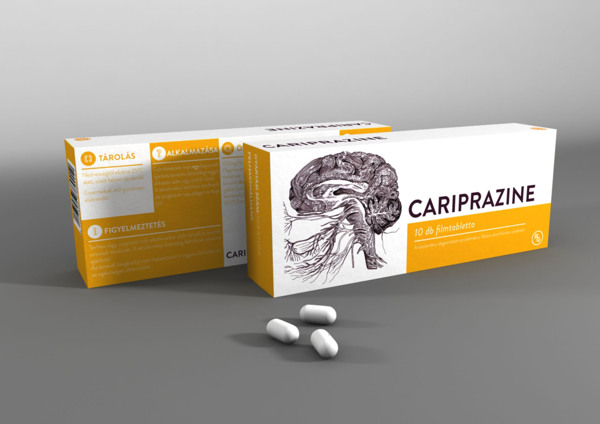New Drug Cariprazine Has Anti-Manic Effects
Cariprazine is a new antipsychotic drug from Hungarian company Gedeon Richter. It functions as a dopamine D3 and D2 partial agonist. The drug has shown significant antimanic effects in three placebo-controlled studies. At the 2014 meeting of the American Psychiatric Association, researcher Robert E. Litman presented findings that 32% of patients with moderate to severe mania improved to a point of minimal or no illness while taking cariprazine, versus 22% who improved similarly while taking placebo. Doses in the studies Litman presented ranged from 3mg/day to 12mg/day.
At the same meeting, researcher Lakshmi N. Yatham discussed cariprazine tolerability. At a mean dose of 7.44mg/day, side effects of cariprazine compared to placebo included akathisia (restless legs) in 20% of patients compared to 5%, extrapyramidal side effects (irregularities in movement) in 13% of patients compared to 5%, vomiting in 9% of patients compared to 4%, and restlessness in 6% of patients compared to 2%. Twelve percent of patients discontinued treatment due to side effects while taking cariprazine, compared to 7% taking placebo. Weight increased by an average of 0.54kg among patients taking cariprazine compared to an average of 0.17kg among those taking placebo. Yatham and colleagues concluded that cariprazine treatment is generally safe and well-tolerated.
It is expected that data on the positive effects of cariprazine in bipolar depression in two placebo-controlled studies will soon be published.
Also at the meeting, researcher Nika Adham et al. reported that in animal studies, cariprazine had greater affinity for the dopamine D3 receptor than aripiprazole (Abilify), another partial agonist at D2 and D3 receptors. D3 receptors are important for the regulation of cognition and mood. It is expected that cariprazine might eventually be useful in the treatment of schizophrenia.


